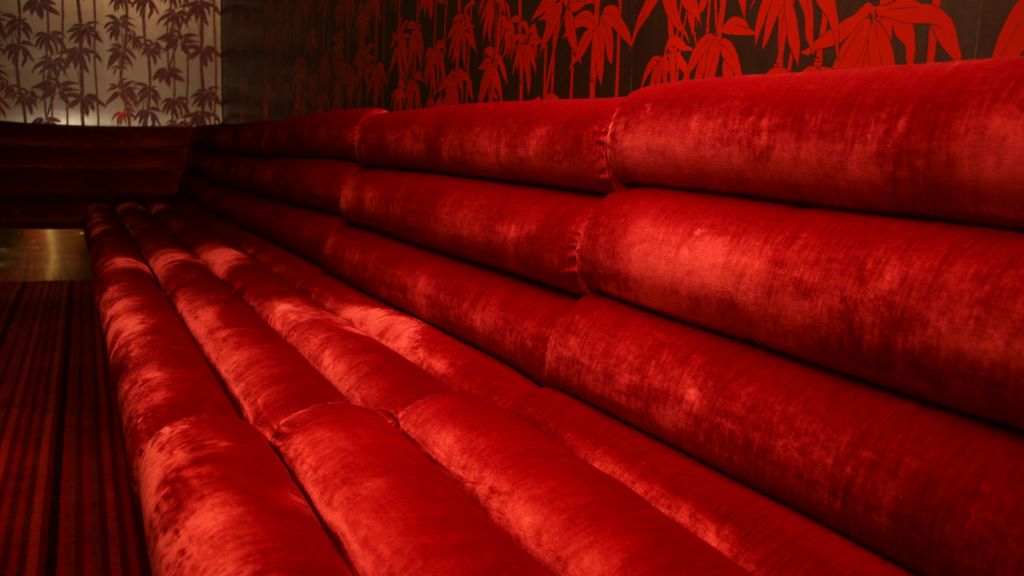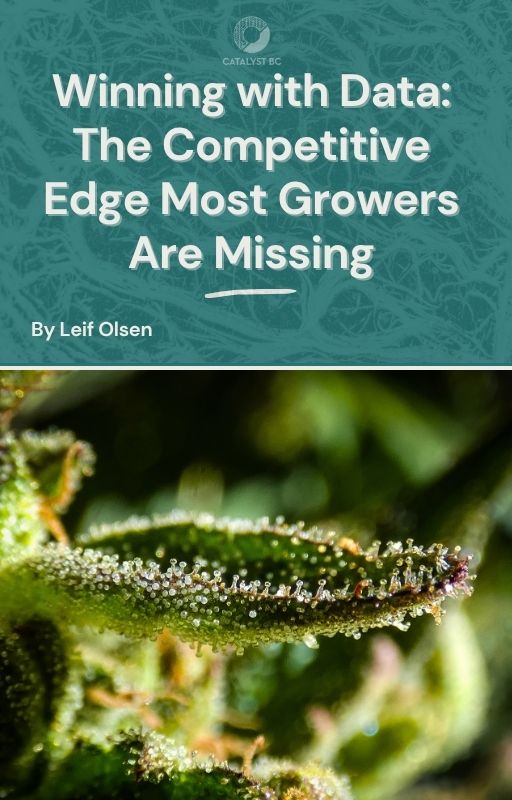Estimated reading time: 1 minute
Table of contents
Cliff Notes: New York Cannabis Lounge License Getting Started Guide
Objective: Understand and navigate the requirements to apply for, and successfully obtain, a New York Cannabis Lounge License.
Key Components:
- New York Allows On-Site Cannabis Lounges: Under OCM regulations, adult-use consumption lounges are permitted but cannot be vertically integrated with dispensary, cultivation, or processing licenses.
- Strict Property Requirements: License applicants must secure a lease or own their venue for a minimum of two years to qualify for a license.
- Municipal Approval Is Mandatory: Lounge operators must gain written approval from their city or community board, especially in NYC, prior to state application.
- Application Requires a Detailed Business Plan: Applicants must outline a security plan, ventilation system, and ID-checking procedures. Initial fees range from $1,000 to $5,000.
- OCM and Cannabis Control Board Discretion: Licenses are reviewed and awarded based on community impact, location compliance, and contribution to social equity goals.
- Operational Rules Are Strict: Lounges must post health warnings, follow noise ordinances, prohibit cannabis sales, and separate smoking areas with approved ventilation systems.
- Noncompliance Can Result in Revocation: Violations such as underage entry, illegal alcohol service, or exceeding license limits can lead to permanent license loss.
Ready to open a compliant and community-approved cannabis lounge in New York? Work with Catalyst BC to confidently navigate the licensing, buildout, and post-license compliance process. Our New York cannabis consultants bring industry-specific insights and hands-on regulatory support to help you succeed in the Empire State’s evolving cannabis market.

Introduction
New York State law provides for adult-use on-site consumption licenses under the Office of Cannabis Management (OCM). As of 2025, New York is still in the early stages of issuing these licenses; only a handful of trial licenses have been granted. The Cannabis Law caps investment (no person can hold more than 3 consumption licenses) and prohibits vertical integration: lounge licensees cannot also hold dispensary, cultivation, or processor licenses. This was done to ensure lounges operate solely as consumption venues, not as sales outlets.
Licensing Steps:
Find a Venue
Identify a suitable property (must be owned or long-term leased by you) – New York requires the licensee to have a lease in hand covering the two-year license period.
Apply for Municipal Approval
Like dispensaries, on-site lounges require municipal consent. Notify your city or town and gain either a community board resolution (in NYC) or local governing body approval. This process often involves demonstrating proximity compliance (No closer than 500 feet from schools or 200 feet from houses of worship) and community benefit.
State License Application
Once local approval is secured, apply via the OCM’s online portal when the application window opens. You’ll need to pay a substantial license fee (initial fee is $5,000 for standard, $1,000 for microbusinesses) and submit a detailed plan. The application will ask for things like: security plan, ventilation plan, anti-drug-driving policy, and how you will separate your lounge from any sales area. Our New York cannabis consultants specialize in application preparation.
Present to the Cannabis Control Board
New York requires the Board’s discretion on these licenses. They will evaluate “public convenience and advantage” factors such as community impact, traffic, and proximity to other cannabis or schools. Be prepared to make a case that your lounge benefits the local area and complies with all social equity goals (50% of all licenses must go to Social Equity applicants).
Post-Application Conditions
If approved, you must obtain any additional state permits (e.g. a generic Adult-Use On-Site Consumption license registration) and undergo any final inspections. The law states that disapproved applicants get a written reason and can request a hearing.
Operational Requirements
New York’s regulations (Title 9 NYCRR Part 122) will include many conditions.
- Expect to: keep cannabis locked up except in sealed containers provided by the consumer, require ID for 21+ access at all times, and post health/safety warnings.
- Smoking lounges must have a separate ventilation system as per state building codes. OCM guidance indicates that patrons cannot consume cannabis-infused food on premises (since the current law doesn’t explicitly allow edible kitchens), but packaged edibles can be consumed.
- Music and performance art will be allowed, but with noise controls (licenses must not increase neighborhood noise beyond allowed levels).
- If an adverse action occurs (over-intoxication, etc.), staff must follow an established protocol.
Compliance Considerations
In New York, failure to follow rules leads to license revocation.
Critical red flags:
- Allowing under-21s in any part of the lounge, selling cannabis or drinks (beyond prepackaged, state-sealed product) on site
- Violating the maximum 3-license-per-person rule
- Keep close records of each patron’s entry time and purchases (you may be required to use the state’s Metrc tracking system for any cannabis entering the lounge).
- Be mindful of the non-alcohol requirement: consuming marijuana in an area where alcohol is served is still illegal.
Why Hire a New York Cannabis Consultant?
Navigating New York’s adult-use cannabis lounge licensing is complex, competitive, and highly regulated. With evolving rules from the Office of Cannabis Management (OCM), social equity benchmarks, municipal approvals, and strict building code requirements, having an expert partner is essential.
Catalyst BC offers end-to-end consulting services tailored to New York’s unique cannabis landscape. From securing a compliant lease to presenting before community boards and drafting airtight application materials, we help operators position themselves for long-term success — not just a license.
Whether you’re a social equity applicant or a well-capitalized entrepreneur, Catalyst BC ensures you launch with clarity, compliance, and community alignment.
Let us help you turn your vision into a fully licensed cannabis lounge. Learn more about our New York Cannabis Consulting Services or contact us today for a complimentary consultation.
New York Cannabis Lounge FAQs
Any individual or entity that meets general license criteria (age 21+, clean record, etc.) and can legally own/lease the premises. Unlike dispensaries, there is no residency requirement for investors.
Yes. Under Cannabis Law §76(4), the municipality must issue an opinion (or consent) before the state can grant a license. In NYC, this means community board review and a letter of no objection from the borough president.
Maximum 3 licenses per person (direct or indirect interest). The Board will investigate ownership structures to enforce this rule.
No. The law explicitly bars consumption licensees from holding any other cannabis license. If you have a dispensary interest, you must divest before getting a lounge license.
Yes, at least 500 feet from any school and 200 feet from any house of worship. Measure these in a straight line.
No. Licenses are “consume-only.” All cannabis must be purchased at a licensed dispensary or brought from home in an approved container. The lounge is strictly a consumption environment.
The Board has been slowly rolling out. Watch OCM press releases; the first awarded lounge licenses are still scarce as of mid-2025. Catalyst BC can alert you when the next application window opens.
Yes. New York’s licensing is highly regulated. Catalyst BC’s New York cannabis consulting team can coordinate with OCM, prepare your application materials (including the required Community Consultation and Traffic Impact Analyses), and get you license-ready.
Navigating the cannabis lounge space is complex—one misstep can delay your opening or jeopardize your license. A specialized New York Cannabis Consultant brings deep regulatory knowledge, operational best practices, and hands-on project management.
From initial concept and licensing to grand opening and ongoing compliance, Catalyst BC’s end-to-end New York Cannabis Consulting services ensure you launch faster, stay compliant, and maximize profitability.
Additional Resources
Free eBooks For Cannabis Business Success
Latest Articles
- Missouri Cannabis Licensing & Business Opportunities 2026Missouri has established itself as the premier success story for cannabis in the Midwest, evolving from a standard medical regime to a high-volume adult-use market that exceeded $1.52 billion in annual sales in 2025. As the market enters the 2026–2027 biennium, the landscape is shifting from rapid expansion toward operational maturation and specialized entry.
- North Carolina Cannabis Licensing & Business Opportunities 2026North Carolina remains one of the final significant jurisdictions in the United States without a comprehensive medical or adult-use cannabis program. However, the 2026–2027 biennium is projected to be the most consequential period in the state’s cannabis history. Driven by the formation of the North Carolina Advisory Council on Cannabis and an impending federal “hemp cliff,” the state is moving from a period of passive prohibition toward a structured, albeit highly restrictive, regulatory framework.
- Nebraska Cannabis Licensing & Business Opportunities 2026Nebraska is entering the 2026–2027 biennium at a historic crossroads. Following the 71% voter approval of Initiatives 437 and 438 in late 2024—the largest margin for a medical cannabis initiative in U.S. history—the state is currently standing up its first regulated medical infrastructure.
- Florida Cannabis Licensing & Business Opportunities 2026Florida represents the most capital-intensive and professionally structured cannabis market in the nation. As of 2026, the state is at a crossroads: it is both expanding its mature medical program and preparing for a potential constitutional shift toward universal adult-use access. On November 3, 2026, Florida voters will decide on the Marijuana Legalization Initiative (Amendment 3). Passing this requires a 60% supermajority—a high threshold, but one that polls suggest is within reach.
- Virginia Cannabis Licensing & Business Opportunities 2026As Virginia transitions from its current “possession-only” model toward a fully regulated retail market, the 2026–2027 biennium represents a once-in-a-generation window for market entry. Unlike the vertically integrated “medical-only” regimes of the past, Virginia’s upcoming framework focuses on decentralization, specifically architected to favor small Virginia-based operators over large multi-state corporations.
- Minnesota Cannabis Licensing & Business Opportunities 2026Minnesota is currently undergoing a transformative shift in its cannabis landscape, moving from a semi-regulated hemp-derived market toward a fully comprehensive adult-use framework. Overseen by the Office of Cannabis Management (OCM), the 2026–2027 biennium represents the critical “enforcement phase” where temporary registrations sunset and permanent, merit-based licenses define the market’s long-term leaders.











